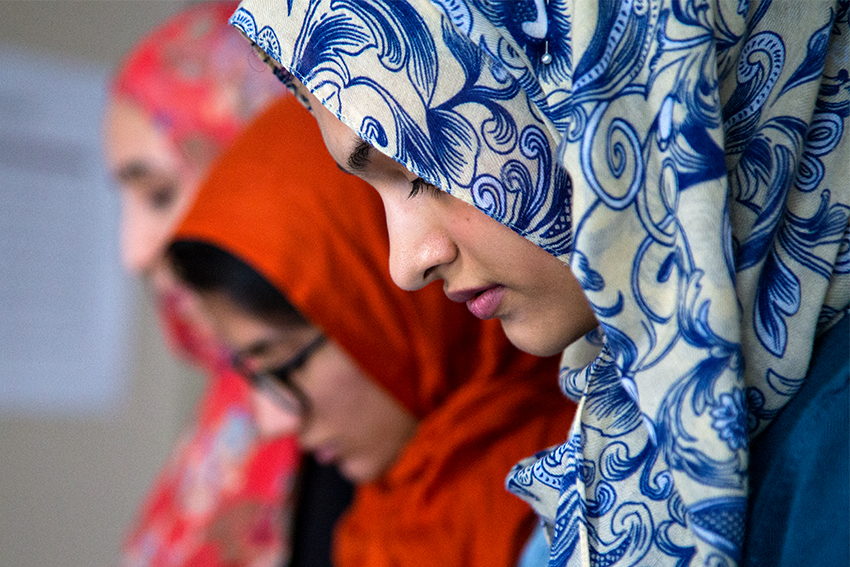During the Islamic holy month, Nida Madni wakes up before dawn for a morning prayer and meal with her Pakistani family to prepare for their 15-hour fast. While the sun shines, they will abstain from food and drink.
Madni, a biochemistry sophomore and officer at UT’s United Muslim Relief, is celebrating Ramadan, one of the Five Pillars of Islam. During the ninth month of the Islamic calendar, Muslims refrain from eating or drinking anything from sunrise to sunset for 30 days. Besides fasting, followers focus on reading the Quran, reinforcing their faith through prayer and finding ways to give back to the community.
“It teaches you to be grateful for what you have, what you’re given and the food you have on your table everyday,” Madni said. “It’s bringing everyone together, and it teaches you to be humble.”
Madni said for her, Ramadan means a month of humbling and increasing her Iman, or faith for one’s self.
“When the Prophet was spreading his messages of Islam, he said that for a Muslim to understand what the poor people are facing, we should fast for 30 days,” Madni said. “You’re also empathizing and understanding those who are not as well off as you.”
Madni is taking two summer classes and working at a CVS pharmacy. But fasting does not interfere with her life as a student, she said, as she drinks a lot of water and eats fruits, vegetables and yogurt before sunrise to stay hydrated.
“It’s definitely a long day, but in the end, you’re doing it for one God, to strengthen your beliefs, to make yourself a better person and to give back to the community,” Madni said. “It’s worth it.”
Biochemistry senior Sidrah Shah, also an officer at UMR, was born in Austin after her parents moved from Pakistan in the 1980s so her father could pursue a masters in engineering. She has celebrated Ramadan from a young age and uses it as a time to meditate on the Quran and her family.
Shah volunteers at the UT UHS clinic during the summer. After work, she reviews sections of the Quran before she helps her mother prepare the evening meal. They break their fast around 8:30 p.m.
“I attempt to plan my life around Ramadan to focus on connecting with my religion,” Shah said. “In terms of my social life, there’s definitely more of a shift to self-reflection by reading the Quran to find what I believe and where I fit into Islam as a whole.”
The Nueces Mosque, established in 1977 as the first mosque in Austin, is one of the spaces near campus where Madni, Shah and others come together to pray during Ramadan.
Samy Ayoub, a lecturer in the Department of Middle Eastern Studies, said Ramadan’s purpose is to obtain a level of righteousness and to achieve spiritual consciousness.
Ayoub said the fasting tradition engages the community as well. He has attended dinners organized by the All Saints Episcopal Church in Austin and synagogues near town, which serve traditional Islamic food after sunset as an example of religious tolerance.
“This type of vicinity and interfaith is very important and spiritual,” Ayoub said. “Ramadan is a place and a time that opens up for mutual engagement with the community principles of justice and solidarity in America.”
With prominent politicians such as presumptive Republican presidential nominee Donald Trump calling for policies including a ban on Muslims traveling to the U.S., Madni said Islam is being targeted as a religion defined by terrorism. But she said she hopes the UT community will not stigmatize its Muslim students by what is exemplified in the media.
“Islam is not a religion of violence, it’s a religion of peace,” Madni said. “Our principles are the most peaceful thing you’ll ever see. No violence, no hate, no crime. Only love and compassion.”




















